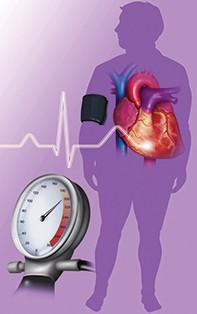Peer Reviewed
Feature Article Cardiovascular medicine
How to diagnose and manage resistant hypertension
Abstract
The number of truly drug-resistant hypertensive patients is small if careful attention is paid to blood pressure measurement, lifestyle measures are instituted and treatment is adjusted as required. An effective drug combination for the treatment of resistant hypertension is an ACE inhibitor (or angiotensin II receptor blocker), a calcium channel blocker and a thiazide-like diuretic, with possibly the addition of a fourth drug.
Key Points
- Around half of patients on antihypertensive treatment have blood pressures above target. However, only about one in three of these patients are truly treatment resistant.
- Apparent treatment resistance can be avoided by careful attention to blood pressure measurement, avoiding therapeutic inertia, careful choice of an effective and well-tolerated regimen, and by working together with the patient to implement lifestyle measures and maximise compliance with an antihypertensive regimen.
- Some old drugs retain their usefulness in the setting of resistant hypertension, and newer innovations have not shown unequivocal benefit.
Picture credit: © BSIP/DIOMEDIA.COM
Purchase the PDF version of this article
Already a subscriber? Login here.

